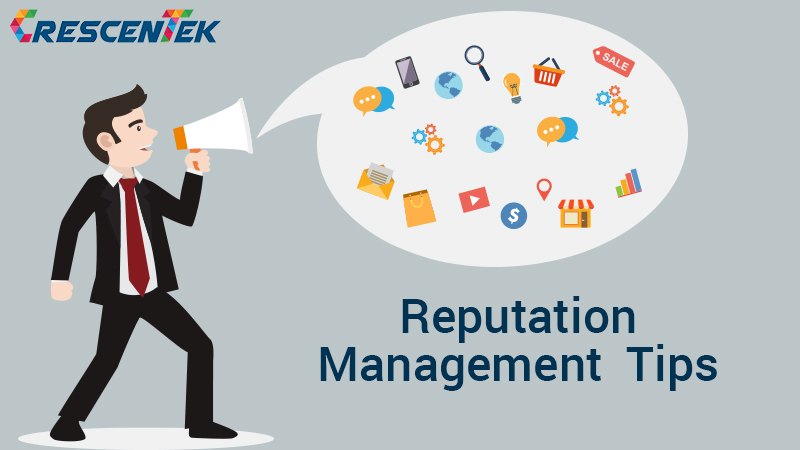- Posted On: 20 Jan 2017
- Posted By: Crescentek
30 Jun 2017
There was a time when people would just open their online website or store and sit back. They did not care for their online reputation, nor were there many places where people could voice their opinions. But those days are gone now! Nowadays, maintaining a favourable reputation is imperative if you want to have an online business beyond a few years.

There are so many Social Media sites such as Facebook and Twitter where people can discuss about your products, services, brands etc. Do not underestimate negative reviews and comments. Multinational companies sometimes have been forced to retract their comments for fear of massive losses.
In social media websites, people interact regularly. If you sell something online, there is a chance that someone somewhere is saying something about you, which may be positive or negative. It does not matter whether if your concern is a multinational conglomerate or a local neighbourhood restaurant. What people are saying in their reviews and opinion posts is very important, not only because they are capable of making and breaking your business, but also for knowing about your target customer.
Transparency is certainly important and even desired when you are dealing with online feedbacks and criticisms. Nowadays, many companies are adopting this method for dealing with online criticisms and comments. However, you are probably asking what does being ‘transparent’ mean in this case. How much is enough? Here are some guidelines:
Now you know how to maintain a transparent relationship with your online readers! The advantage of this technique is that it builds trust and good reputation over time, something which is hard to attain online but is easy to lose.
This technique is not without its faults either. Since you are encouraging feedback and opinions, you need to be ready for anything, as well as to answer them appropriately in time. There are some of the downsides to this technique:
There are three things which a company needs to be aware of, and take immediate countermeasures.
i) Aggressive and proactive SEO campaigns: When people Google your company’s name, they come across not only the corporate website, but also other sites where your name is mentioned. This includes online forums and social media. If these comments are negative, prospective customers and clients can turn away from the brink of doing business with you. If you do come across this kind of problem, you need to initiate an online reputation management campaign. Use good SEO tactics to highlight positive comments and reviews through back linking while gradually pushing down the negative comments.
ii) Removal of false reviews and information: Not everything posted on the web is true. Many people post false and negative information about a company for reasons best known to them. If you see any information that is false, which hurts the corporate reputation without constructive criticism and has improper language, you can arrange to take such a comment down by contacting the domain or website owner.
iii) Initiating online investigations: Sometimes, attacks against your company are not sporadic, but reflect a sustained campaign to sully your good name. If such is the case, you may need to hire online data analysts to investigate potential threats through strategies such as data cross indexing, email tracking and data mining.
We live in a digital world where everyone and everything is interconnected. Not only that, but one person’s action is capable of affecting the state of another on the other side of the world. For an online business, this means that if you have a favourable reputation to bank on, you can go through hard times easily. It also means that the public feels connected with you and looks on your efforts in a positive light. In such a world, Reputation Management is getting more and more important.